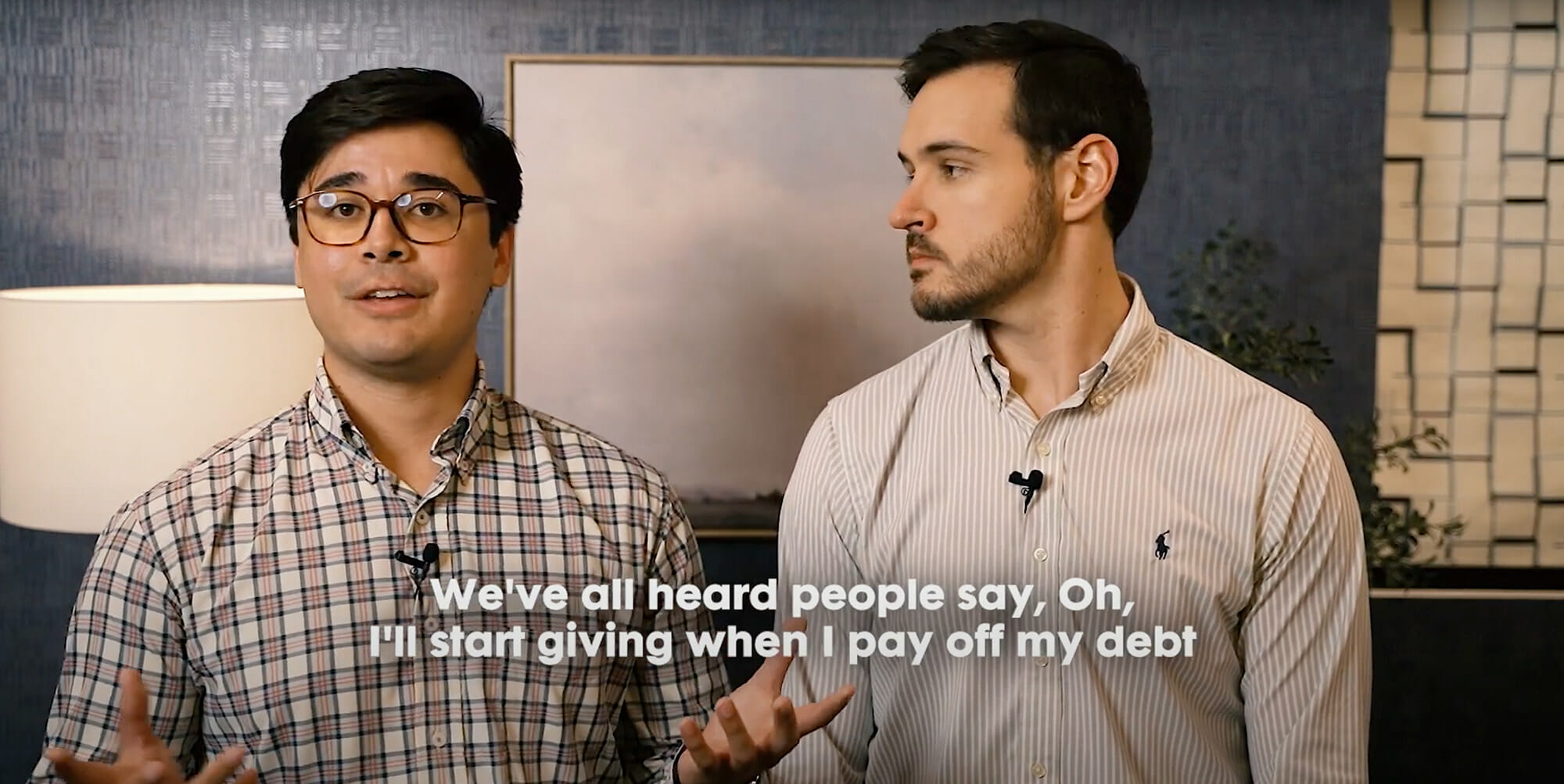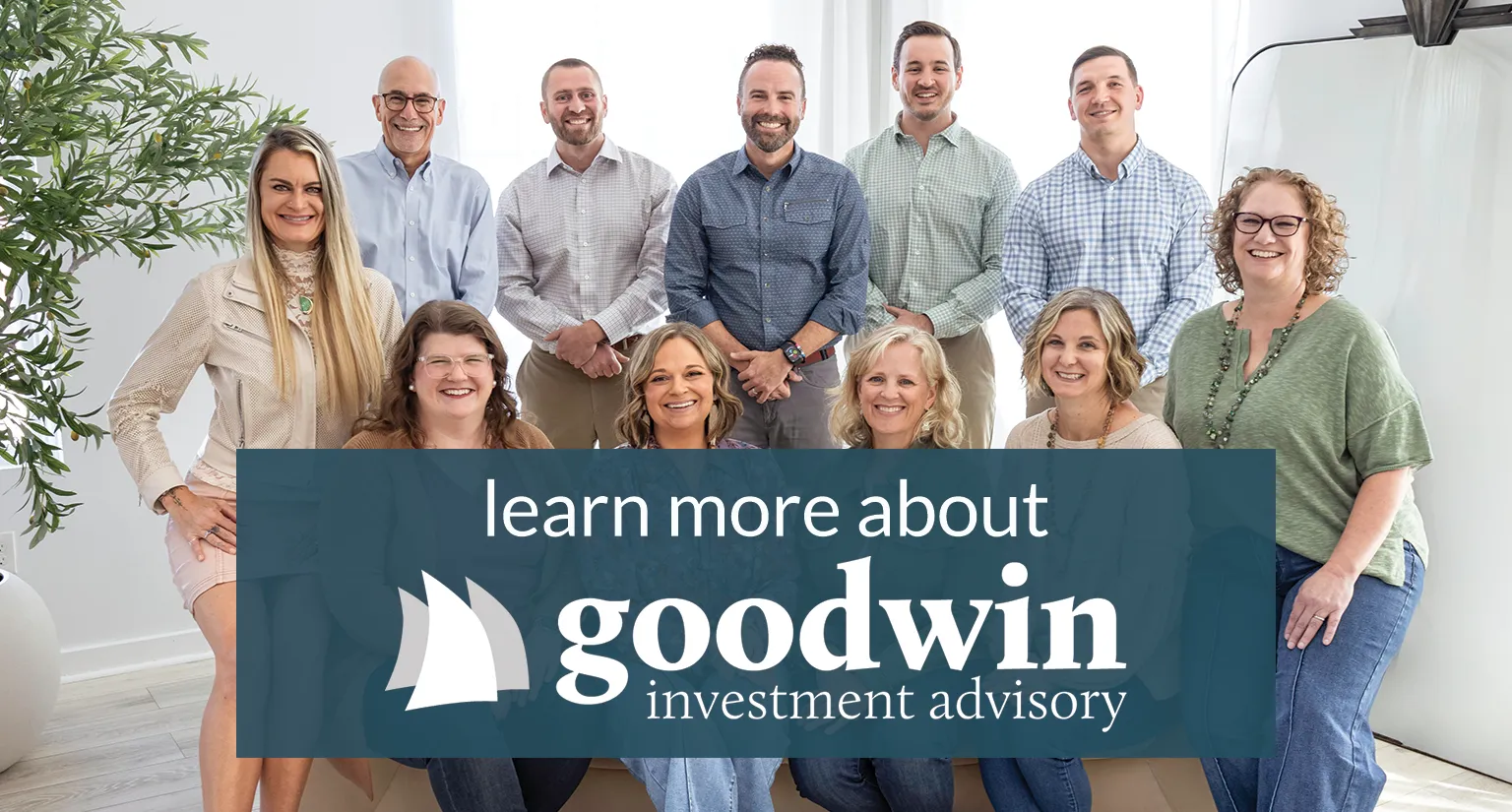November 16, 2022
How can you be generous when you’re in the accumulation, or wealth-building, phase of life?
Are you in your 20-30s and want to know the best way to be generous with your money? Rory Glatt, 23 and Ray Brown, 31 are both Associate Wealth Advisors at Goodwin Investment Advisory and they share their personal experience with being generous, what it means to them, why they do it, and how simple it is to start even if you start small with just $5 a week.
Rory shares how he makes generosity a part of his lifestyle by creating healthy giving habits. When asked what generosity means to him, he shared, “To me, generosity in terms of your finances means to have a calculated plan of how to give your money first, rather than last. So, for real-life application, this is done in my life by having a percentage taken out of my pay each month and being designated for giving. This is different from random acts of giving when you give spontaneously or emotion-based.” It feels so good to give and being intentional with your money and creating a habit of taking your giving out first helps to keep you giving generously. It would be so easy to give last and in doing so often end up using that money for expenses and other spending and have no margin to give at the end of the month.
Ray shares why he feels it is important to give excitedly stating how it feels good and how it makes him magnetic and gives him a different perspective. Ray articulated, “People can see there’s something different about you. And others are naturally drawn to that. When you are focused on the purpose of serving and giving, life gets a new perspective.” Dale Alexander, author of ‘The Talk about money: A Young Adult’s Guide to the ONE DECISION That Changes Everything’ recently told Ray and Rory two things that stuck with them:
-
Everything about life gets a new perspective when you become a giver. The world rewards those who give. Everybody wants a piece of a person who’s a giver. Why? Because givers are rare.
-
The “law of reciprocity.” You can never “outgive” what you “out get”. Even though you will get more financial rewards than you give, the “things” that you define are important and will change when you become a giver. What you define as a reward will completely be different when you start giving because everything gets a new perspective.
Start giving
The best plan is to just begin giving. It’s OK if you don’t yet know how or where you may choose to give, but you can start saving now in an “extra giving” account and let it grow. The money will be ready and available, outside of your regular budget and planning when you feel drawn to a cause or opportunity to offer hope to someone. Sometimes knowing where to give your money comes easier when you are already volunteering your time to a cause or an organization, which is another way to be generous but with your time. You can consider what you are passionate about and look up organizations in your area that are helping to meet that need. Maybe you just start by helping out once a month and if the saying is true, “Your money will follow your heart.”
Once you determine where to give your money, starting with any amount or percentage is OKAY. We’ve all heard people say “Ohhh, I’ll start giving when I pay off my debt” or “When I get my next raise” or “When I start making more money, I’ll be able to give to my church or charity.” But generosity is a mindset and you NEED to have a plan. It is harder to be consistently generous when you don’t have a plan in place to give. This is not to say that random acts of kindness and giving are not part of your generosity as well, but it is good to sit down and decide how much money you plan to give and where you want to commit to giving to on a monthly basis.
How to give?
Set aside for giving first… THEN your future (which is your retirement savings… most often a 401(k) through your job), and THEN budget out the remaining funds. You don’t have to wait until your income is bigger – it’s okay to start small, set a percentage, and then as your income grows, so will the dollar amount you’re giving. It may not feel like much, but it will build up quickly!
We talk about generosity a lot with our clients at Goodwin Investment Advisory as it is a part of our mission statement, “To lead people to financial peace, independence, and generosity.” Generosity is also a part of our goodLIFE pyramid of topics and goals we reference frequently in our planning meetings with clients. We’d be happy to help start a conversation with your family around generosity or help set up a Donor Advised Fund (DAF) that can serve as the core of your charitable giving. If you are interested in creating a financial plan or want help setting goals around investing, budgeting, saving, giving, or any other financial goals we would be happy to have a free consultation with you. Schedule an intro call with one of our consultants here.











